
The Dental School Mock Interview Tests
We have developed these mock interview questions to give you a simulation of the types of scenarios and questions you can expect in your UK dental school interview. We have created an MMI interview and panel interview mock for you to attempt.
We recommend completing these mock tests following undertaking all online modules. You may wish to get a friend or family member to ask the questions to you in timed, interview conditions.

Mock Interview 1 - Multiple Mini Interview Dental School Interview 2020/21
MMI Mock Interview
During the MMI Interview you will be presented with a series on interview stations. As such this will be conducted as a number of ‘mini short interviews’ hence the name Multiple Mini Interview.
Usually most dental schools who conduct an MMI style interview will have between 10-12 stations, with a time of 8-10 minutes per station.
For this MMI mock interview there are 10 stations, with each station timed for 6 minutes.
Station 1: Personal Statement
Q1) Can you tell me something interesting about yourself?
Q2) What fascinated you about your work experience?
Q3) What extracurricular activities have you done?
Station 2 : Ethics
Q4) Do you think it is fair to tax those who earn more?
Q5) Should a dentist ever break patient confidentiality? If so, when?
Station 3: Manual dexterity
For this task you require a string approximately 1 metre in length.
Q6) Follow these instructions to create an ‘Australian Based Knot’, try to be as accurate as possible and use the images to guide you.
Form a loop leaving a long tag end. Braid the loop and tag end tightly together (the actual braid length depends on the line weight). Complete the braid using a bight in the tag end. Pull the original loop through the hole created and tighten pulling smoothly on the tag end.


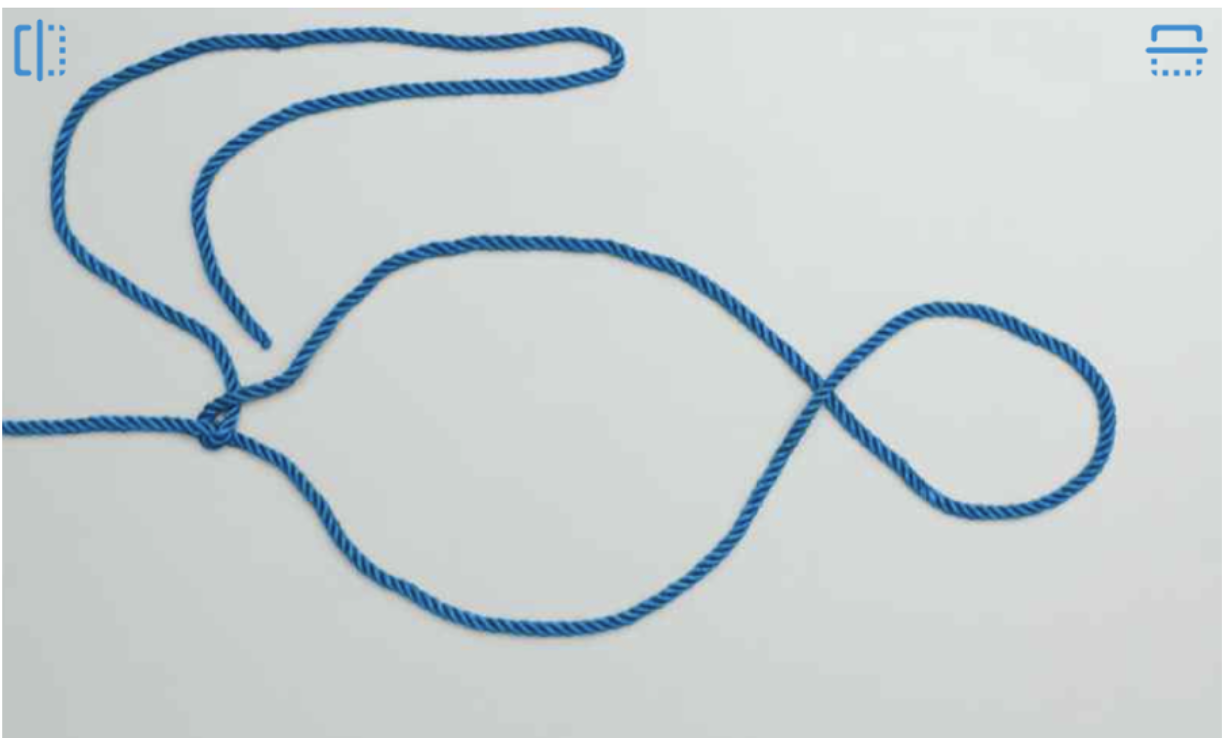


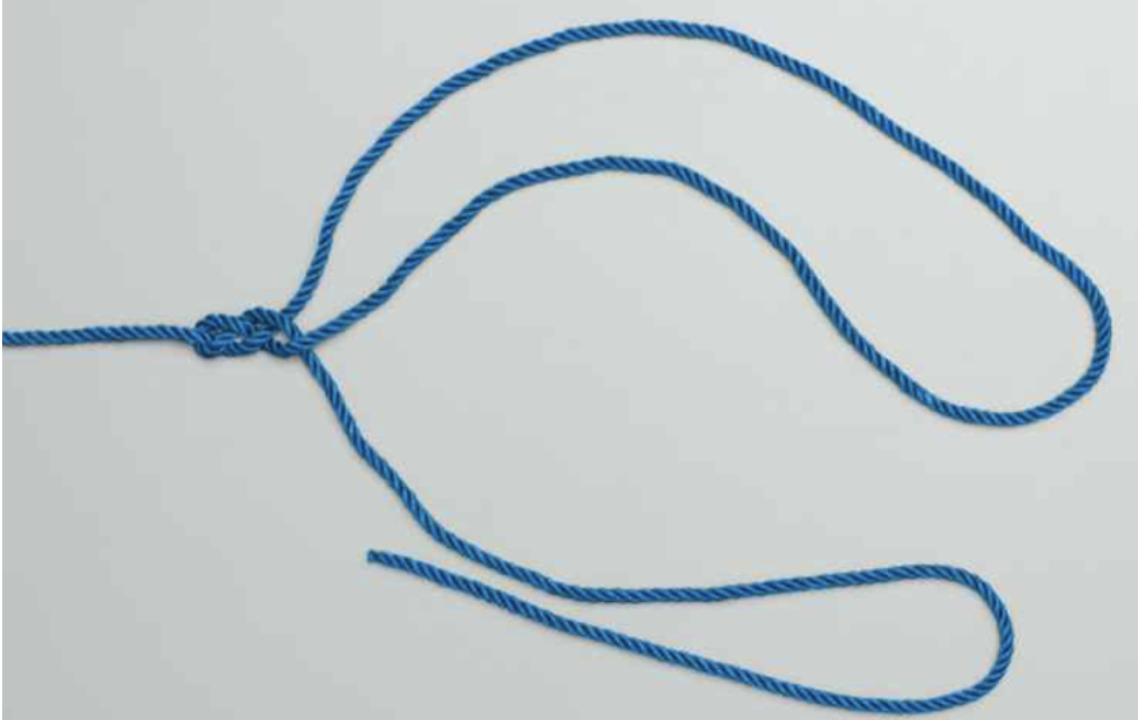

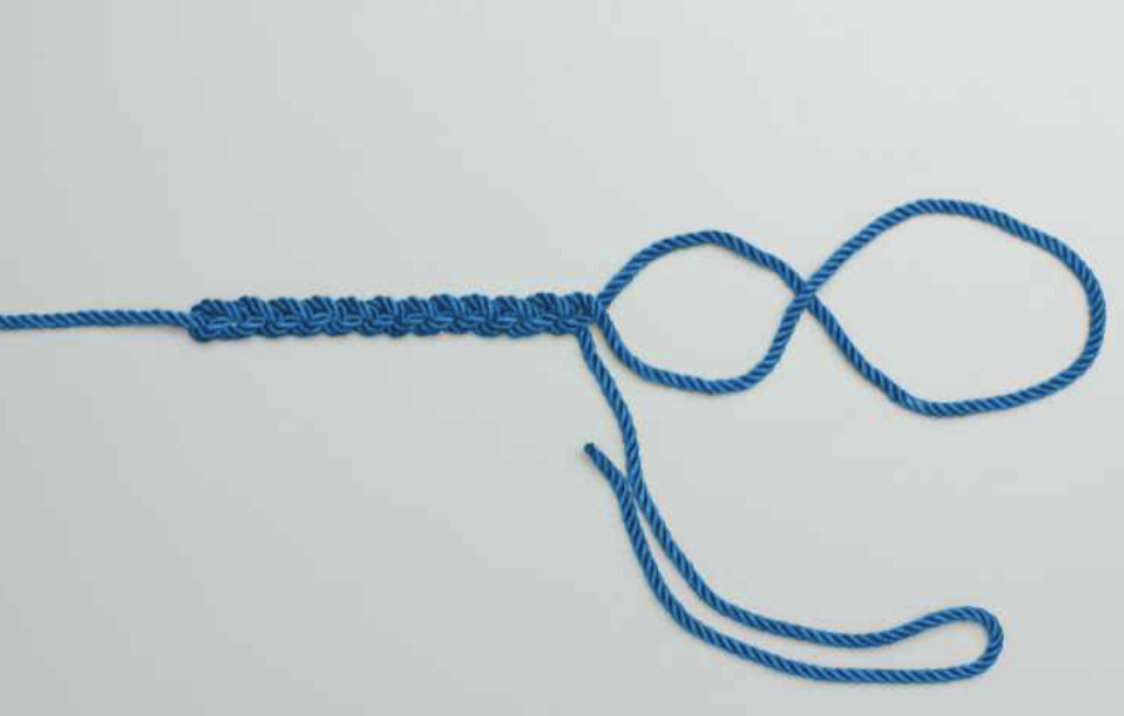



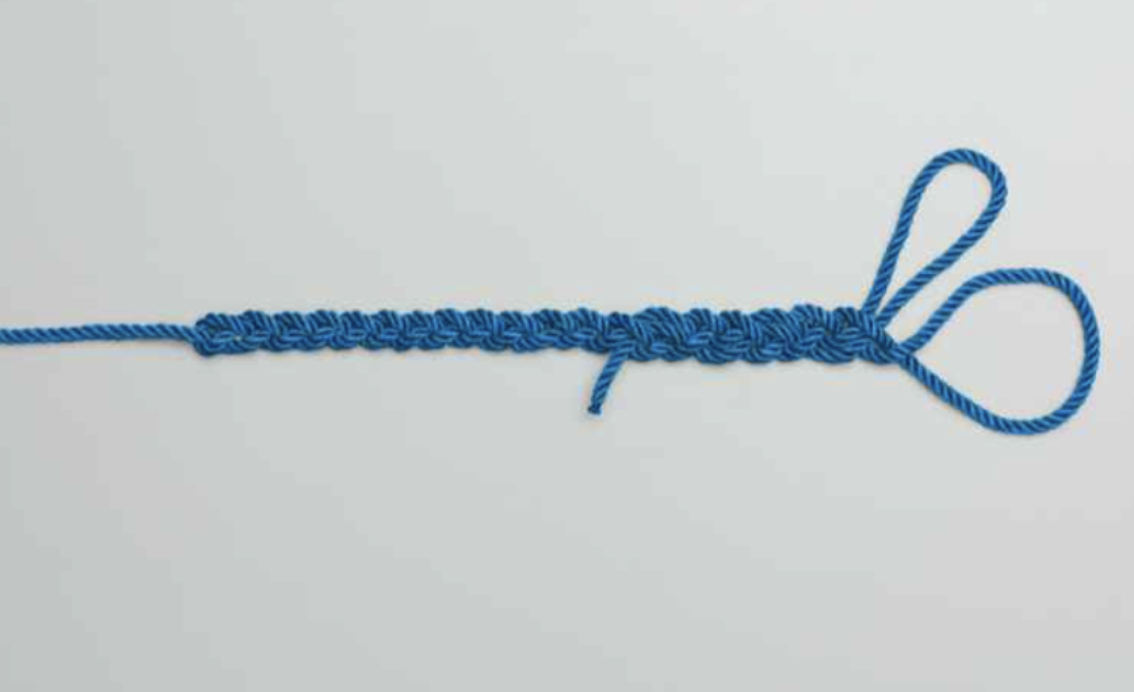
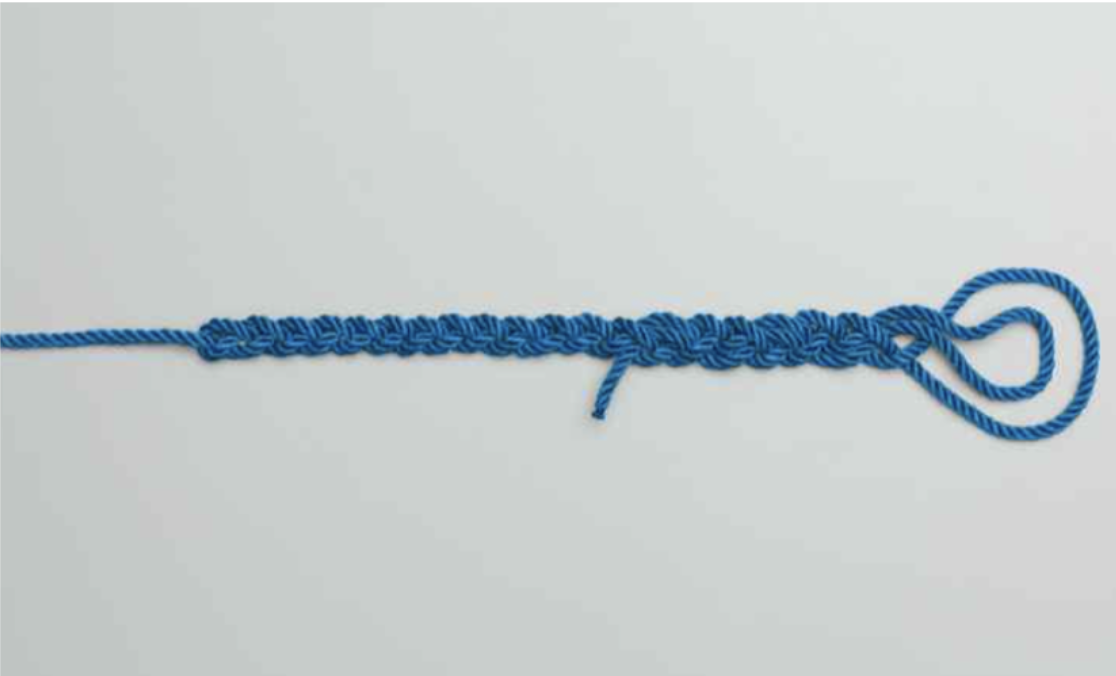

Station 4: Professionalism
Q7) Do you think it is appropriate for dentists to smoke and consume alcohol in their personal life?
Q8) Should dentists be available on social media? What may be the consequences of this?
Station 5 : Role play
Q9) John Smith, a 32 year old patient, is visiting the dentist for the first time ever, for a routine checkup. During the examination you notice decay, caries and overall poor oral health. John is very anxious to hear about his oral health. You have to explain what you found during the examination to John.
Station 6: Leadership
Q10) What skills do you think it takes to be a good leader?
Q11) Can you give examples of where you have shown signs of good leadership skills?
Station 7: Social awareness
12) How do you think covid-19 has affected dentistry?
13) What new technology is being used in dentistry?
Station 8: Critical Thinking
14) What is your opinion on restraining patients who lack capacity?
15) What is the need for dental professionals to have flu immunisations?
Station 9: Knowledge
16) What are dental caries?
17) What is The Mental Capacity act?
18) What can you tell me about something you have read regarding dentistry or the NHS?
Station 10: Communication
19) Explain the statement given below:
“Water fluoridation is a violation of the individual’s right to informed consent to medication.”
20) Do you agree or disagree? Explain your reasoning.
MMI mock suggested answers
Q1) It is sensible to briefly introduce yourself explaining your current academic status, your background in education and your personal interests. You should aim to discuss something that genuinely interests you. Whether it is a sport or what you do in your downtime. This is a good opportunity to showcase your personality. You don't have to say something extraordinary as long as what you say is genuine.
Q2) Try to explain what you observed, linking specifically to the qualities that the dentist demonstrated. It is crucial to explain why you found this interesting. For example, you may have seen the use of a rubber dam, which illustrated you how dentists display good manual dexterity.
Q3) This answer can be all about your achievements. Any leadership roles or contributions to society can be mentioned in this question. You can also mention any sports you play or instruments you have learned.
Q4) You will need to start off by showing the interviewer that you understand both sides of the argument rather than being biased. Try to think of valid arguments. Why may someone who earns more not want to pay as much tax? They may feel as if someone else is benefiting from their hard work. People who earn less may feel that it will be harder for them to survive due to their low income. Consider why tax is important.
Q5) You need to showcase why confidentiality is important in dentistry. As dental professionals it's our duty to ensure we maintain public confidence in the profession. Linking to the General Dental Councils Standards is prudent and will show incite. Ensure you have valid backup points for everything that you mention as an argument. One example of when it may be okay to break confidentiality is when a patient is in immediate danger i.e. from a safeguarding issue.
Q6) The aim is to stay as calm as possible. Try to follow the images/instructions as accurately as possible. Reflection is also a key point in manual dexterity tasks. You may be asked to reflect on what went well or what can be improved. Remember dental schools don't expect you to have 100% dexterity skills as this is something that you will develop on the course
Q7) Once again there are two arguments to these questions. Dentists should be promoting good oral health, which smoking is bad for. Think of the implications if a dentist is seen smoking, what may happen? Patients may lose trust in the profession, relating this back to the GDC principles of maintaining patient trust, this would be a negative. However, others may argue that smoking or drinking alcohol isn't illegal hence dentists should have the freedom to do so.
Q8) There are positives and negatives or social media. It can be used to promote good oral health and raise public awareness, however one negative of this may be that patient confidentiality can be compromised through social media, which can reduce public confidence in the profession. You may also want to consider in your answer how social media can be used to tackle issues such as dental anxiety and dental health education.
Q9) The key to role play stations is to show empathy. This can be done through non-verbal communication such as keeping an open posture, listening and having good body language. Make sure to provide a solution to the patients problems, explain the situation and be gentle when breaking bad news. SPIKES acronym can be used to break bad news. This stands for Setting up, Perception, Invitation, Knowledge, Emotions with Empathy, and Strategy or Summary. Offer them your help and be sure to give them next steps that they can take.
Q10) You may want to mention useful skills such as organisation, hard work, being understanding and good teamwork. You can then relate these skills back to how a dentist needs to have these skills when working as the lead of a multidisciplinary team.
Q11) Leadership involves the motivation of a group of individuals towards a common goal. Leadership examples include time you may have worked in a team or took charge of a situation when in school. If you were head boy/girl, mentor or even a prefect this would be a useful time to mention this.
Q12) Think of the implications COVID-19 has had on the NHS. What are the risks involved in a dental practice? Dental practices use aerosol procedures which increase the risk of transmission for coronavirus. This impacted many private and nhs practices causing them to shut down as they were not prepared for this outbreak. Although dental practices have very good infection control, they have had to rethink many of their PPE measures such as having extra decontamination, air exchanges within the surgery, number of patients in the clinic.
Q13) You can mention advancements that you have read about online or even in books. One advancement is the use of 3-D scanning in dentistry which is still relatively new. You can mention how technology has helped practices such as the digital workflow and what may be the drawbacks of the technology i.e. financial strains on practices.
Q14) Restraining patients should be the final option. You want to consider this question holistically. Patients who may cause harm to themselves, others or interfere with their treatment may be better off restrained for their own safety. However, from patient perspectives this may cause them to feel as though their right to freedom is being taken away. We must only use this as a last option where we are sure as professionals that there is no other option.
Q15) Infection prevention and control is critical. Try to consider what immunisations do. As a dentist you will have to be in contact with many patients. Immunisations can help reduce the risk of transmissions between dentists and their patients.
Q16) Tooth decay (dental caries) is damage to a tooth that can happen when decay-causing bacteria in your mouth make acids that attack the tooth's surface, or enamel. This can lead to a cavitation in a tooth, called a cavity. If tooth decay is not treated, it can cause pain, infection, and even tooth loss.
Q17) The Mental Capacity Act (MCA) is designed to protect and empower people who may lack the mental capacity to make their own decisions about their care and treatment. It applies to people aged 16 and over.
Q18) This can be anything that you have read online about dentistry or the NHS. You will need to give examples of what you have read (ensure this is as accurate as possible) and reflect on how it made you feel or what you found interesting about the article/book.
Q19) For this question you will need to explain what water fluoridation actually is. Fluoride is a naturally occurring mineral found in water in varying amounts, depending on where in the UK you live. It can help prevent tooth decay, which is why it's added to many brands of toothpaste and, in some areas, to the water supply through a process called fluoridation. Individuals may be against fluoridation as they have not given consent to have their water fluoridated.
Q20) It is important to remember there is no right or wrong answer. Regardless of which side of the argument you feel strongly about it is crucial to consider that you need to back up your points with relevant answers. Here are some arguments you can expand on.
Arguments against for water fluoridation (but not limited to) - Ethical questions have been raised in regard to the use of fluoride, especially because of fluoride’s ties to the phosphate fertilizer and dental industries. Furthermore, researchers have reported difficulties with getting articles published that are critical of fluoride, and an urgent need for an appropriate application of the precautionary principle (i.e. first, do no harm) related to fluoride usage has emerged. People are now exposed to fluoride from an array of sources. Since water fluoridation began in the 1940s, an array of products containing fluoride have been introduced to the average consumer including water, dental products, pesticides, fluoride supplements, other prescription drugs, and many other sources.
Arguments for water fluoridation (but not limited to) - Prevents tooth decay. Fluoride in water is the most efficient way to prevent one of the most common childhood diseases – tooth decay. Protects all ages against cavities. Studies show that fluoride in community water systems prevents at least 25 percent of tooth decay in children and adults, even in an era with widespread availability of fluoride from other sources, such as fluoride toothpaste.

Mock Interview 2: Panel Mock Online Interview
This interview is timed at 40 minutes
2020/21 Dentistry Panel Mock Online Interview
Q1) Why do you want to study dentistry?
Q2) Why our university?
Q3) Tell us something valuable you learned from your work experience?
Q4) What activities do you enjoy in your spare time?
Q5) What qualities do you think every dentist should have?
Q6) Do you speak multiple languages? How would you handle a non-english speaking patient?
Q7) You are a final year student. Your senior dentist is extremely rude to you. What will you do?
Q8) Dentistry can be a very stressful career. What do you think you may not like about dentistry as a career?
Q9) Why does a dentist need a dental nurse?
Q10) Can you tell me a bit about the water fluoridation argument? Why may some people be for or against it?
Q11) Why may someone have dental anxiety?
Q12) What do you think can be done to raise oral health awareness?
Q13) Have you ever been criticised and how did you cope with that?
Q14) Do you have any particular weaknesses that you are aware of?
Panel Interview Answers & Suggestions
Q1) You should aim to address the following points in your answer:
What interested you about dentistry?
When did you first come across the career?
Mention about your work experience and how that went.
Try to be as engaging as possible but remember to be genuine. You may want to refer back to what you wrote in your personal statement.
Good answers will include:
-Clear evidence of student visiting city/ dental school/ website/ open day and linking their observations to why this has drawn them to this dental school.
-Mentions the salient and unique points of the dental school and links this to the unique aspects of the unique.
-Mention of the city and the key features that have attracted the student to this city.
-Evidence of student researching the university with mention of feature unique to the dental school.
Q2) It would be a good idea to research the universities ‘selling point’. Is it their facilities, location or even teaching style. You will need to mention what you can also bring to the university itself. This can be anything from playing in a sports team to being a good role model through previous achievements.
Q3) This question is asking you to reflect on what you have observed in the dental practice. You will need to use the correct terminology for tools the dentist used as well as procedures they followed. You can mention how what you observed has interested you to do some further research. Be prepared to explain in detail what you saw.
Q4) Dentistry can be very stressful. You will need to show the interviewers that you are able to cope with stress and that you can multitask. There can be pressure in dental school so it is important to have some activities (eg sports, playing instruments, painting, gaming etc) that you use to relax.
Q5) Here are some qualities dentists need to have: good organisational skills, good communication skills, leadership skills. They need to be professional and friendly, someone who patients feel that they can talk to. You will then need to link this with why they need to have these qualities. For example, they need to be organised because they are leading a team of dental nurses, so they need to have everything prepared before a patient comes in. They must keep organised to avoid burnout with workload.
Q6) If you do speak multiple languages, it is a good point to mention here as being bilingual can help you communicate effectively with patients who may not speak english. If you do not speak multiple languages that’s still okay. To communicate with a non-english speaking patient you would ensure your body language and eye contact are correct and that you are using hand gestures to communicate. Non verbal communication is just as important. You will need to speak slowly, and use universal language such as hand movements that most people would understand regardless of their language.
Q7) The key here is not to jump into a direct answer. You want to consider the question and situation holistically. You may want to speak to the senior dentist in private about their comments towards you. This may help you two to communicate and resolve the situation. However, you will not want to do this in a confrontational manner as you do not know their end of the story. You want to be as understanding as possible and while expressing how you feel about the situation to them. If that does not work it may help to get a tutor involved and inform them of how you feel.
Q8) Being a dental student/dentist can be very stressful. Your answer should aim to provide a solution to how you will overcome the issue you have about the career. For example, you may not be looking forward to the business side of dentistry however you understand how different aspects of the career are equally as important.
Q9) A dentist is a part of a team which includes dental nurses, technicians and dental hygienists. Each member of the team is equally important including dental nurses. You want to show the interviewers that you understand the value of other health professionals and respect what they do. A dental nurse helps the dentist in procedures, organises the clinic including helping in infection control and keeping everything ready for appointments.
Q10)Fluoride is a naturally occurring mineral found in water in varying amounts, depending on where in the UK you live. It can help prevent tooth decay, which is why it's added to many brands of toothpaste and, in some areas, to the water supply through a process called fluoridation. It is important to remember there is no right or wrong answer. You can pick any side of the argument but is crucial to consider that you need to back up your points with relevant answers. Here are some arguments you can expand on.
Arguments against for water fluoridation (but not limited to) - Ethical questions have been raised in regard to the use of fluoride, especially because of fluoride’s ties to the phosphate fertilizer and dental industries. Furthermore, researchers have reported difficulties with getting articles published that are critical of fluoride, and an urgent need for an appropriate application of the precautionary principle (i.e. first, do no harm) related to fluoride usage has emerged. People are now exposed to fluoride from an array of sources. Since water fluoridation began in the 1940s, an array of products containing fluoride have been introduced to the average consumer including water, dental products, pesticides, fluoride supplements, other prescription drugs, and many other sources.
Arguments for water fluoridation (but not limited to) - Prevents tooth decay. Fluoride in water is the most efficient way to prevent one of the most common childhood diseases – tooth decay. Protects all ages against cavities. Studies show that fluoride in community water systems prevents at least 25 percent of tooth decay in children and adults, even in an era with widespread availability of fluoride from other sources, such as fluoride toothpaste.
Q11) Dental anxiety is a very common fear of visiting the dentist. There can be many reasons for dental anxiety, such as a phobia of needles and drills, past traumatic experiences of dentists, depression or post-traumatic stress disorder. The view that the mouth is a personal area and accessing the mouth is an invasion of personal space.
Q12) You can mention a range of answers and they can be as creative as you like as long as they seem realistic. Here are a few points that can be done to raise oral health awareness; equipping patients with the knowledge to take care of their own oral health, more TV adverts showing the importance of flossing/brushing, introducing children with the dentist from an early age to eliminate any fears, making appointments with the dentist as accessible as possible such as reducing treatment costs to attract more people to visit the dentist.
Q13) It is very important to be able to reflect in dentistry. You need to give an example of how you dealt with the criticism and moved on. This can be in a form of self improvement. You should take this opportunity to address reflecting in a positive way and showing the interviewer that you can overcome a problem.
Q14) The aim here is not to say you have no weaknesses because everyone does. You should be honest and tell the interviewer what active steps you have done to become better. For example, “I am a bit lazy at times and require to be under pressure so that I can work. However, I realise that I need to work on my organisational skills. Lately, I have been using a timetable and I set myself daily goals to keep myself motivated to do my work. This has helped me become more work efficient and as a result I have been able to revise much more for my exams. This is a technique I hope to use in dental school as well to help me stay organised and on top of work.”
100 Dentistry Interview Questions
Why do you wish to study dentistry?
What motivates you?
What did you learn from your work experience?
What would you say is your greatest weakness?
Why do you want to study at this university?
What can you bring to this university?
Why not pursue medicine or other healthcare professions instead of dentistry?
What is your greatest strength?
How do you cope with stress?
Have you read any articles about dentistry recently?
Can you tell us about some modern advancements in dentistry lately?
What challenges do you think a dental student faces?
If you didn’t get into dentistry what would you do?
Can you tell us how you stay organised?
What do you do apart from academic studies?
What do you currently find most interesting in your life?
What are you looking forward to most about starting dentistry?
Why is manual dexterity important in dentistry?
Can you describe a time where you displayed good leadership skills?
Why not become a dental hygienist instead of a dentist?
Give examples of good manual dexterity that you have displayed?
What can you tell me about the NHS banding system?
Tell me about a time where you experienced a setback and how did you overcome this?
How do you deal with criticism?
How will you balance workload in dental school?
What does the GDC do and why do we need it?
Do you think the NHS should become privatised?
Why is dentistry more important than ever?
What advice would you give yourself 5 years ago?
How do you cope with frustration?
What are the advantages of evidence based learning?
Do you prefer evidence based learning or problem based learning?
If you had a patient who was really anxious how would you calm them down?
How do you help out in your local community?
Do you feel you possess the qualities of a good dentist?
Who inspires you?
Why should we select you compared to other applicants?
Where do you see yourself in the next 10 years?
What are your long term goals?
What are the disadvantages of using amalgam?
What problems do most dentists face today?
What did you like least about your work experience?
What are you least looking forward to in dentistry?
If there was one thing you could change about dentistry what would it be?
Who are the members in a dental team?
Would you rather be a leader or a follower?
What is your best quality?
What is your greatest fear about becoming a dentist?
What would you do if your friend decides to copy your essay at dental school?
You finish an essay which is due tomorrow. You have spent ages working on it but just as you are about to save your work your computer switches off and all your work is lost. What will you do?
Your friends go out without inviting you to go with them. What would you do?
Your friend asks to use your gym membership. She has been going through financial problems and asks to borrow your entry card. The gym membership is only for paying residents. What would you do?
You are having a drink with your friends and you notice one of them going outside. From the window you can see that they are extremely angry on the phone with someone. They come inside and tell you they’re going home. What would you do?
You overhear one of your friends saying that they have pictures of the upcoming exam. What do you do?
Your friend calls you in the morning just before your lecture starts and asks you to sign them in as they cannot make it today due to a family emergency. What will you do in this situation?
Why do you think multitasking is important in dentistry?
Should people who smoke have to pay extra for their dental treatment as they are causing harm themselves?
You are observing a dentist. They smell of alcohol when they walk past you. What will you do?
A 13-year old patient comes in for an appointment. Just before you begin their treatment you notice they have bruises on their neck. The mother is present in the same room. What will you do?
Your friend starts a social media page asking people for donations as they are financially unstable. However you know that this isn’t the case at all. What steps will you take?
A dental student you know shares an image online of a patient as a joke. Do you think this was appropriate to do?
Do you think all dental treatment should be completely free of charge?
What is fluoride?
Why do you think dentistry is known as a lifelong learning career?
Have you researched the university course?
Who is the most important member of the dental team?
What book have you recently read and enjoyed?
Who is one person you would love to have coffee with?
Is there a particular field of dentistry you are interested in?
What do you do in your spare time?
If you could improve one thing in your application what would it be?
Can you name some instruments the dentist used while at your work experience?
How do you think social media can be used to increase oral hygiene awareness?
Are there any societies that you wish to join?
What research have you done relating to dentistry?
What is one thing you look least forward to about university life?
How have you developed independence?
How do you think someone can improve their confidence?
One of your friends does not stay in contact anymore and doesn’t attend their lectures. You see them on campus one day, what would you say?
Do you think teams need leaders?
When do you think a dentist may break confidentiality?
What is the difference between sympathy and empathy?
What is enamel?
Why do you think dentistry is a 5-year course?
How would you treat a patient that is disabled?
What are the risks associated with X-rays?
Why does a dentist require a dental nurse?
What advice would you give to a patient to look after their oral health?
What do you think prevents people from looking after their oral health?
How can dentists increase awareness about maintaining good oral hygiene?
What do you think are some of the factors which limit people from visiting the dentist regularly?
What do you think is the future of dentistry?
What is tooth decay?
What is gingivitis?
Name some differences between NHS and Private dentistry?
What are some issues the NHS is currently facing?
You are a final year dental student. Your senior dentist is extremely rude and has a go at you at every opportunity. What will you do?
Do you think signing petitions makes a difference?
You accidentally break your friend’s glasses by stepping on them. Those were her only pair. How will you approach her?
Do you think you will be a successful dentist and why?
